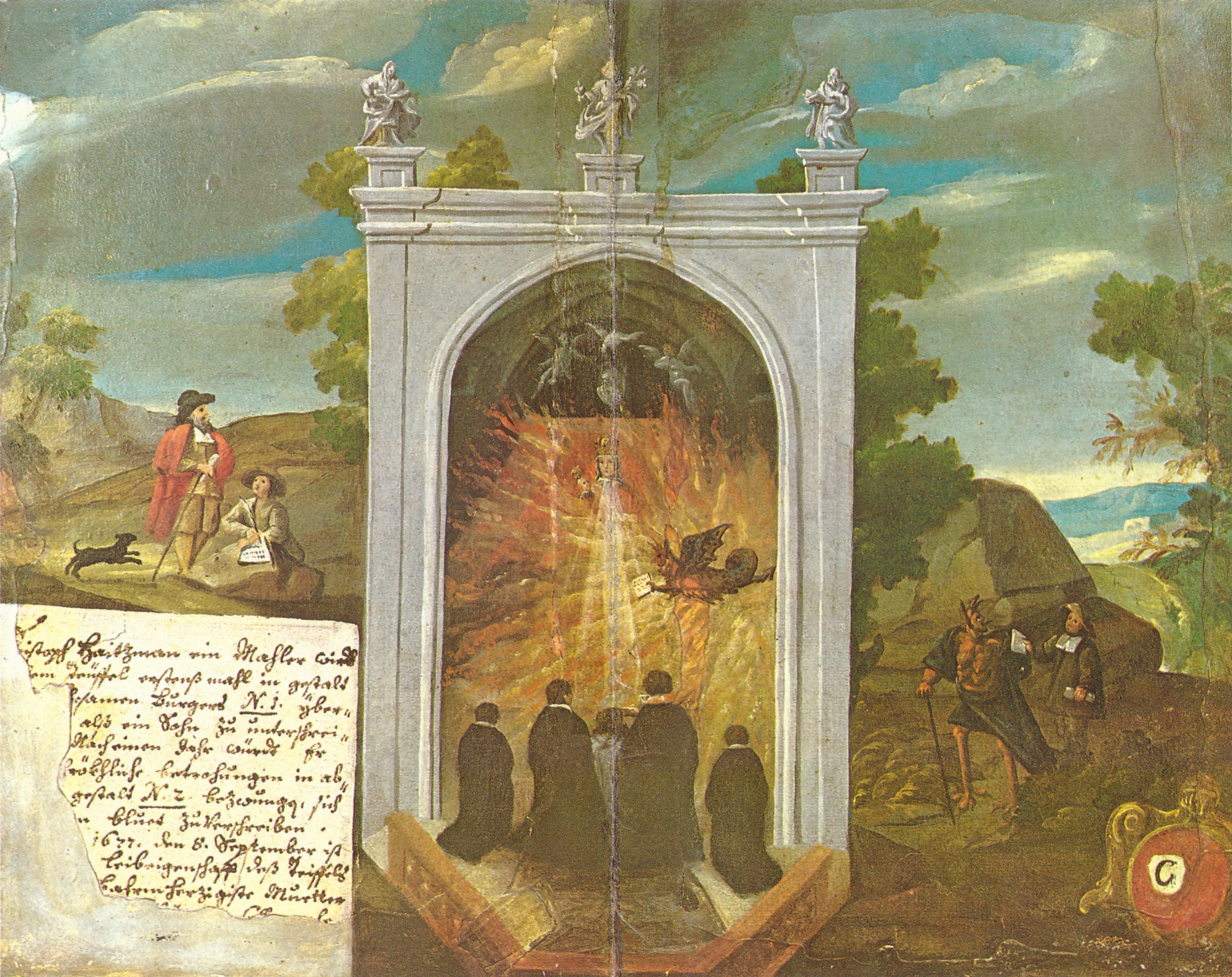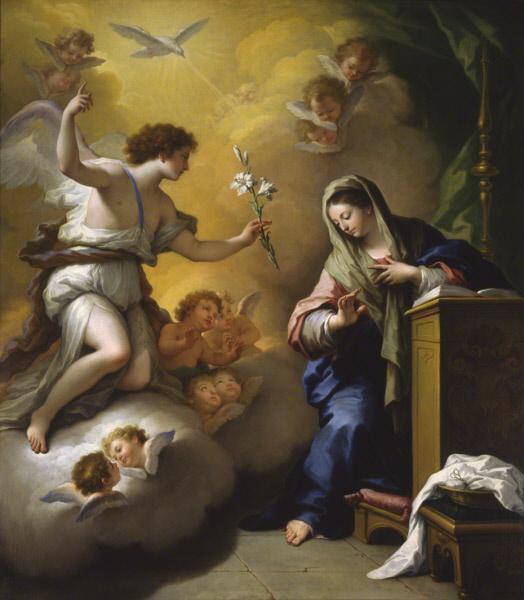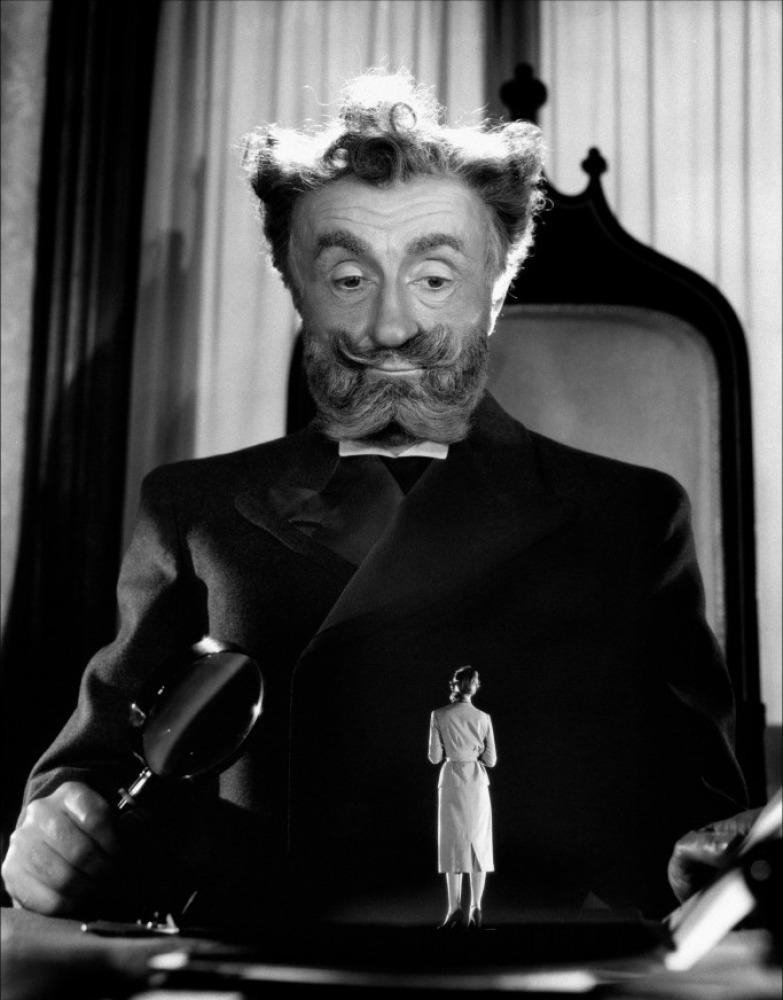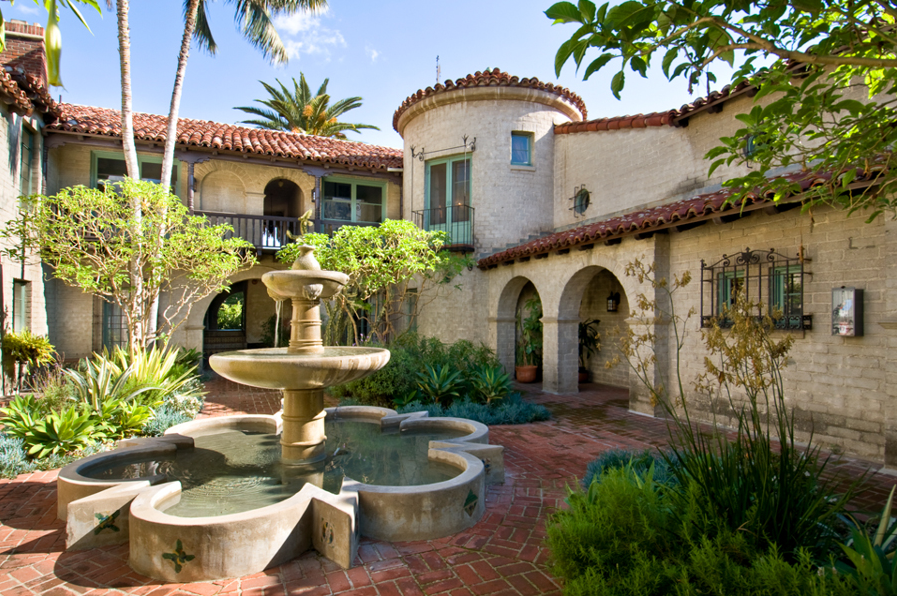|
Faust – Eine Deutsche Volkssage
''Faust – A German Folktale'' (German: ) is a 1926 silent film produced by Universum Film AG, Ufa, directed by F. W. Murnau, starring Gösta Ekman (senior), Gösta Ekman as Faust, Emil Jannings as Mephisto, Camilla Horn as Gretchen/Marguerite, Frida Richard as her mother, William Dieterle, Wilhelm Dieterle as her brother and Yvette Guilbert as Marthe Schwerdtlein, her aunt. Murnau's film draws on older traditions of the legendary tale of Faust as well as on Goethe, Goethe's Goethe's Faust, classic 1808 version. Ufa wanted Ludwig Berger (director), Ludwig Berger to direct ''Faust'', as Murnau was engaged with ''Variety (1925 film), Variety''; Murnau pressured the producer and, backed by Jannings, eventually persuaded Erich Pommer to let him direct the film. ''Faust'' was Murnau's last German film, and directly afterward he moved to the US under contract to William Fox (producer), William Fox to direct ''Sunrise: A Song of Two Humans'' (1927); when the film premiered in the Ufa ... [...More Info...] [...Related Items...] OR: [Wikipedia] [Google] [Baidu] |
Erich Pommer
Erich Pommer (20 July 1889 – 8 May 1966) was a German-born film producer and executive. Pommer was perhaps the most powerful person in the German and European film industries in the 1920s and early 1930s. As producer, Erich Pommer was involved in the German Expressionist film movement during the silent era. As the head of production at Decla Film, Decla-Bioskop, and, from 1924 to 1926, at UFA, Pommer was responsible for many of the best known movies of the Weimar Republic such as '' The Cabinet of Dr. Caligari'' (1920), '' Dr. Mabuse, the Gambler'' (1922), ''Die Nibelungen'' (1924), ''Michael'' (1924), '' Der Letzte Mann / The Last Laugh'' (1924), ''Variety'' (1925), ''Tartuffe'' (1926), ''Manon Lescaut'' (1926), ''Faust'' (1926), ''Metropolis'' (1927) and ''The Blue Angel'' (1930). He later worked in American exile before returning to Germany to help rebuild the German film industry after World War II. Early life and career Pommer was born in Hildesheim, Province of Hanover ... [...More Info...] [...Related Items...] OR: [Wikipedia] [Google] [Baidu] |
Ludwig Berger (director)
Ludwig Berger (born Ludwig Bamberger; 6 January 1892 – 18 May 1969) was a German-Jewish film director, screenwriter and theatre director. He directed more than 30 films between 1920 and 1969. Berger began working in the German film industry during the Weimar Republic. At Decla-Bioscop and later UFA he established a reputation as a leading director of silent films. He emigrated to Hollywood, but was unable to establish himself and returned to Europe. He subsequently worked both in France and Germany. He was a member of the jury at the 6th Berlin International Film Festival. Berger also translated a few plays of Shakespeare, including ''Cymbeline'', ''Hamlet'', and ''Timon of Athens''. His elder brother was the set designer Rudolf Bamberger who was killed in 1945. Selected filmography Film * ''The Mayor of Zalamea'' (1920) * ''The Story of Christine von Herre'' (1921) * '' A Glass of Water'' (1923) * ''The Lost Shoe'' (1923) * ''A Waltz Dream'' (1925) * '' The Master of N ... [...More Info...] [...Related Items...] OR: [Wikipedia] [Google] [Baidu] |
Parma
Parma (; egl, Pärma, ) is a city in the northern Italian region of Emilia-Romagna known for its architecture, Giuseppe Verdi, music, art, prosciutto (ham), Parmigiano-Reggiano, cheese and surrounding countryside. With a population of 198,292 inhabitants, Parma is the second most populous city in Emilia-Romagna after Bologna, the region's capital. The city is home to the University of Parma, one of the oldest universities in the world. Parma is divided into two parts by the Parma (river), stream of the same name. The district on the far side of the river is ''Oltretorrente''. Parma's Etruscan name was adapted by Romans to describe the round shield called ''Parma (shield), Parma''. The Italian literature, Italian poet Attilio Bertolucci (born in a hamlet in the countryside) wrote: "As a capital city it had to have a river. As a little capital it received a stream, which is often dry", with reference to the time when the city was capital of the independent Duchy of Parma. Histor ... [...More Info...] [...Related Items...] OR: [Wikipedia] [Google] [Baidu] |
Deals With The Devil In Popular Culture
The idea of making a deal with the devil has appeared many times in works of popular culture. These pacts with the Devil can be found in many genres, including: books, music, comics, theater, movies, TV shows and games. When it comes to making a contract with the Devil, they all share the same prevailing desire, a mortal wants some worldly good for their own selfish gain, but in exchange, they must give up their soul for eternity. Generally when Satan is depicted in these works, he is represented as a red-skinned man with horns or pointed ears on his head, hooves or bird-legs, a forked tail or one with a stinger, and a pitchfork. When trying to blend in or deceive somebody, often he is represented as a plain human being, and, in some instances, only his voice is heard. The theme enjoyed a large run of popularity in the 20th century. At one point Anthony Boucher, editor of ''The Magazine of Fantasy & Science Fiction'', "reported that fully 50 percent of his unsolicited submissions ... [...More Info...] [...Related Items...] OR: [Wikipedia] [Google] [Baidu] |
Crossroads (mythology)
In folklore, crossroads may represent a location "between the worlds" and, as such, a site where supernatural spirits can be contacted and paranormal events can take place. Symbolically, it can mean a locality where two realms touch and therefore represents liminality, a place literally "neither here nor there", "betwixt and between". Ancient religions In Greek mythology, crossroads were associated with both Hecate and Hermes, with shrines and ceremonies for both taking place there. The herm pillar associated with Hermes frequently marked these places due to the god's association with travelers and role as a guide. Though less central to Greek mythology than Hermes, Hecate's connection to crossroads was more cemented in ritual. 'Suppers of Hecate' were left for her at crossroads at each new moon, and one of her most common titles was 'goddess of the crossroads.' In her later three-fold depictions, each of the three heads or bodies is often associated with one of three crossing ... [...More Info...] [...Related Items...] OR: [Wikipedia] [Google] [Baidu] |
Book Burning
Book burning is the deliberate destruction by fire of books or other written materials, usually carried out in a public context. The burning of books represents an element of censorship and usually proceeds from a cultural, religious, or political opposition to the materials in question. Book burning can be an act of contempt for the book's contents or author, intended to draw wider public attention to this opinion, or conceal the information contained in the text from being made public, such as diaries or ledgers. In some cases, the destroyed works are irreplaceable and their burning constitutes a severe loss to cultural heritage. Examples include the burning of books and burying of scholars under China's Qin Dynasty (213–210 BCE), the destruction of the House of Wisdom during the Mongol siege of Baghdad (1258), the destruction of Aztec codices by Itzcoatl (1430s), the burning of Maya codices on the order of bishop Diego de Landa (1562), and the burning of Jaffna Public Lib ... [...More Info...] [...Related Items...] OR: [Wikipedia] [Google] [Baidu] |
Archangel
Archangels () are the second lowest rank of angel in the hierarchy of angels. The word ''archangel'' itself is usually associated with the Abrahamic religions, but beings that are very similar to archangels are found in a number of other religious traditions. Archangels also appear in the religious texts of Gnosticism. The English word ''archangel'' is derived from Greek ἀρχάγγελος (arkhángelos), the Greek prefix " arch-" meaning "chief". A common misconception is that archangels are the highest rank of angel, this misconception stems from John Milton's '' Paradise Lost'' and likely confusion over the "arch-" prefix. Description Michael and Gabriel are recognized as archangels in Judaism, Islam, and by most Christians. Some Protestants consider Michael to be the only archangel. Raphael—mentioned in the deuterocanonical Book of Tobit—is also recognized as a chief angel in the Catholic and Eastern Orthodox churches. Gabriel, Michael, and Raphael are venerated ... [...More Info...] [...Related Items...] OR: [Wikipedia] [Google] [Baidu] |
Satan
Satan,, ; grc, ὁ σατανᾶς or , ; ar, شيطانالخَنَّاس , also known as Devil in Christianity, the Devil, and sometimes also called Lucifer in Christianity, is an non-physical entity, entity in the Abrahamic religions that seduces humans into sin or falsehood. In Judaism, Satan is seen as an agent subservient to God in Judaism, God, typically regarded as a metaphor for the ''yetzer hara'', or "evil inclination." In Christianity and Islam, he is usually seen as a fallen angel or jinn who has rebelled against God in Abrahamic religions, God, who nevertheless allows him temporary power over the fallen world and a host of demons. In the Quran, Shaitan, also known as Iblis, is an entity made of fire who was cast out of Heaven because he refused to bow before the newly created Adam in Islam, Adam and incites humans to sin by infecting their minds with ''waswās'' ("evil suggestions"). A figure known as ''ha-satan'' ("the satan") first appears in the Hebrew B ... [...More Info...] [...Related Items...] OR: [Wikipedia] [Google] [Baidu] |
German Expressionism
German Expressionism () consisted of several related creative movements in Germany before the First World War that reached a peak in Berlin during the 1920s. These developments were part of a larger Expressionist movement in north and central European culture in fields such as architecture, dance, painting, sculpture and cinema. This article deals primarily with developments in German Expressionist cinema before and immediately after World War I, approximately from 1910 to the 1930s. History The German Expressionist movement was initially confined to Germany due to the country's isolation during World War I. In 1916, the government banned foreign films, creating a sharp increase in the demand for domestic film production: from 24 films in 1914, to 130 films in 1918. With inflation also on the rise, Germans were attending films more freely because they knew that their money's value was constantly diminishing.Thompson, Kristin. Bordwell, David. ''Film History: An Intro ... [...More Info...] [...Related Items...] OR: [Wikipedia] [Google] [Baidu] |
Special Effect
Special effects (often abbreviated as SFX, F/X or simply FX) are illusions or visual tricks used in the theatre, film, television, video game, amusement park and simulator industries to simulate the imagined events in a story or virtual world. Special effects are traditionally divided into the categories of mechanical effects and optical effects. With the emergence of digital film-making a distinction between special effects and visual effects has grown, with the latter referring to digital post-production and optical effects, while "special effects" refers to mechanical effects. Mechanical effects (also called practical or physical effects) are usually accomplished during the live-action shooting. This includes the use of mechanized props, scenery, scale models, animatronics, pyrotechnics and atmospheric effects: creating physical wind, rain, fog, snow, clouds, making a car appear to drive by itself and blowing up a building, etc. Mechanical effects are also often inco ... [...More Info...] [...Related Items...] OR: [Wikipedia] [Google] [Baidu] |
Hollywood, Los Angeles
Hollywood is a neighborhood in the Central Los Angeles, central region of Los Angeles, California. Its name has come to be a metonymy, shorthand reference for the Cinema of the United States, U.S. film industry and the people associated with it. Many notable film studios, such as Columbia Pictures, Walt Disney Studios (division), Walt Disney Studios, Paramount Pictures, Warner Bros., and Universal Pictures, are located near or in Hollywood. Hollywood was incorporated as a municipality in 1903. It was Merger (politics), consolidated with the city of Los Angeles in 1910. Soon thereafter a prominent film industry emerged, having developed first on the East Coast. Eventually it became the most recognizable in the world. History Initial development H.J. Whitley, a real estate developer, arranged to buy the E.C. Hurd ranch. They agreed on a price and shook hands on the deal. Whitley shared his plans for the new town with General Harrison Gray Otis (publisher), Harrison Gray Otis, ... [...More Info...] [...Related Items...] OR: [Wikipedia] [Google] [Baidu] |
Ufa-Palast Am Zoo
The Ufa-Palast am Zoo, located near Berlin Zoological Garden in the New West area of Charlottenburg, was a major Berlin cinema owned by Universum Film AG, or Ufa. Opened in 1919 and enlarged in 1925, it was the largest cinema in Germany until 1929 and was one of the main locations of film premières in the country. The building was destroyed in November 1943 during the Bombing of Berlin in World War II and replaced in 1957 by the Zoo Palast. History The Neo-Romanesque building at Hardenbergstraße was designed as an exhibition hall by architect Carl Gause (1851–1907), an alumnus of the Bauakademie who had also drawn plans for the Hotel Adlon. Like the '' Romanisches Haus'' nearby, the design followed the model of the Kaiser Wilhelm Memorial Church at Auguste-Viktoria-Platz (present-day Breitscheidplatz), built in 1891–1895 according to plans by Franz Schwechten. The development of a "Romanesque forum" met the demands of Emperor Wilhelm II who even set guidelines for the de ... [...More Info...] [...Related Items...] OR: [Wikipedia] [Google] [Baidu] |







_-_American_Ad_1921.jpg)


